Are you an owner of a small to medium size business and looking to exit?
We will make your business buyer ready for higher returns
Proven Exit Framework to Deliver Best Returns
even finding a perfect buyer for you
THE EXIT FRAMEWORK
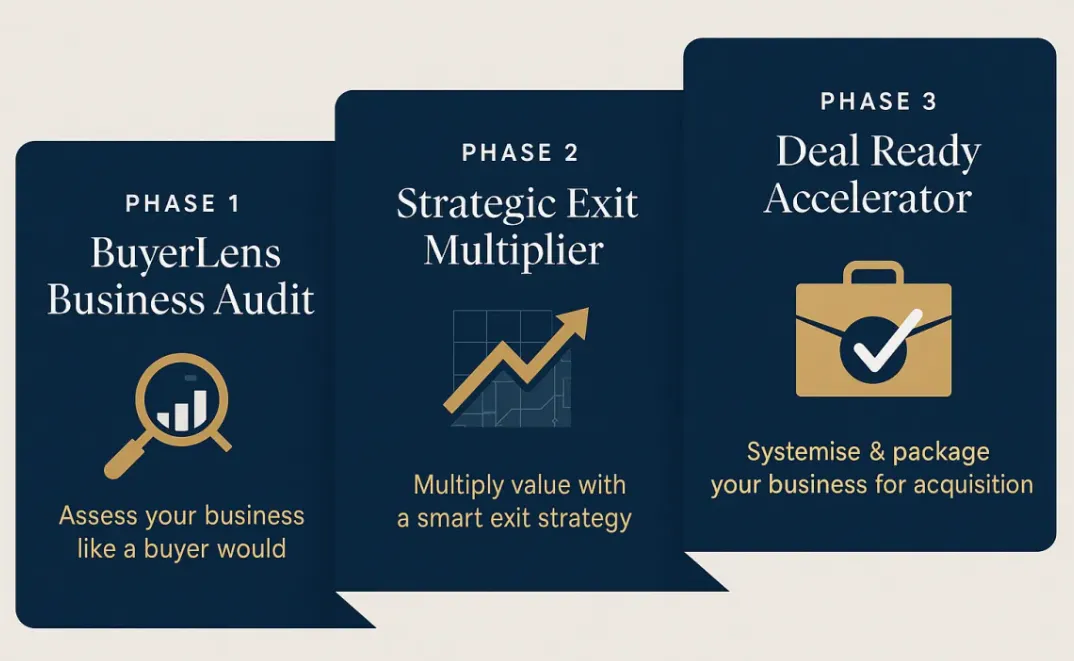
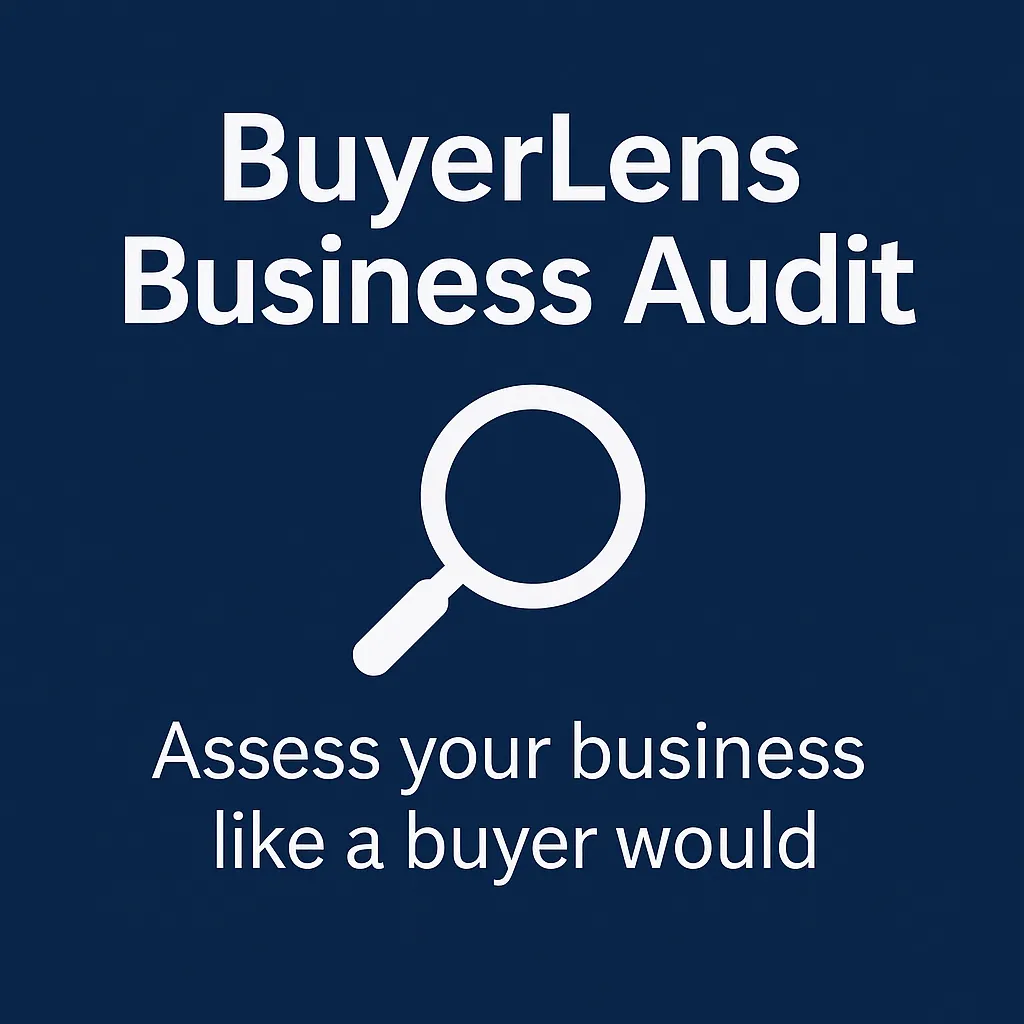
BuyerLens Business Audit
What would a buyer really see?
We analyse your company exactly how a buyer — investor, strategic buyer, or PE firm — would. We identify valuation blockers, missed opportunities, red flags and untapped value before they show up in due diligence.
You’ll uncover:
Where your business depends too much on you
What makes your company look risky, even if it isn’t
Where value is being lost in your team, offer, or ops
What IP, data, or processes you should be
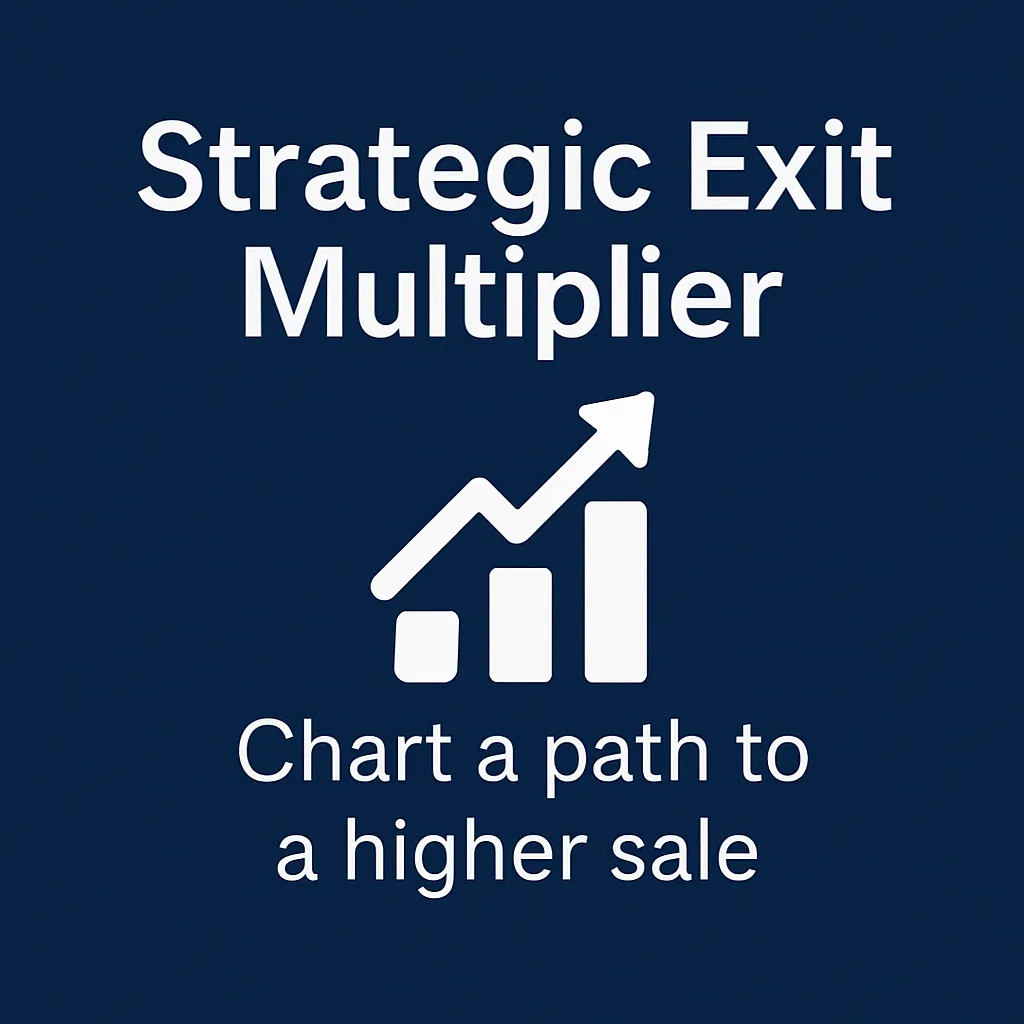
Strategic Exit Multiplier
Why would a buyer Pay more?
Once we identify the gaps, we design a strategy to increase your valuation. This is about creating a strategy that will be your blueprint to build structure, margin, and performance that buyers would pay premium for.
You’ll build:
An exit strategy aligned to your ideal buyer profile
An offering structure that supports margin growth
Recurring or predictable revenue where possible
Clear roles, succession plans, and performance dashboards
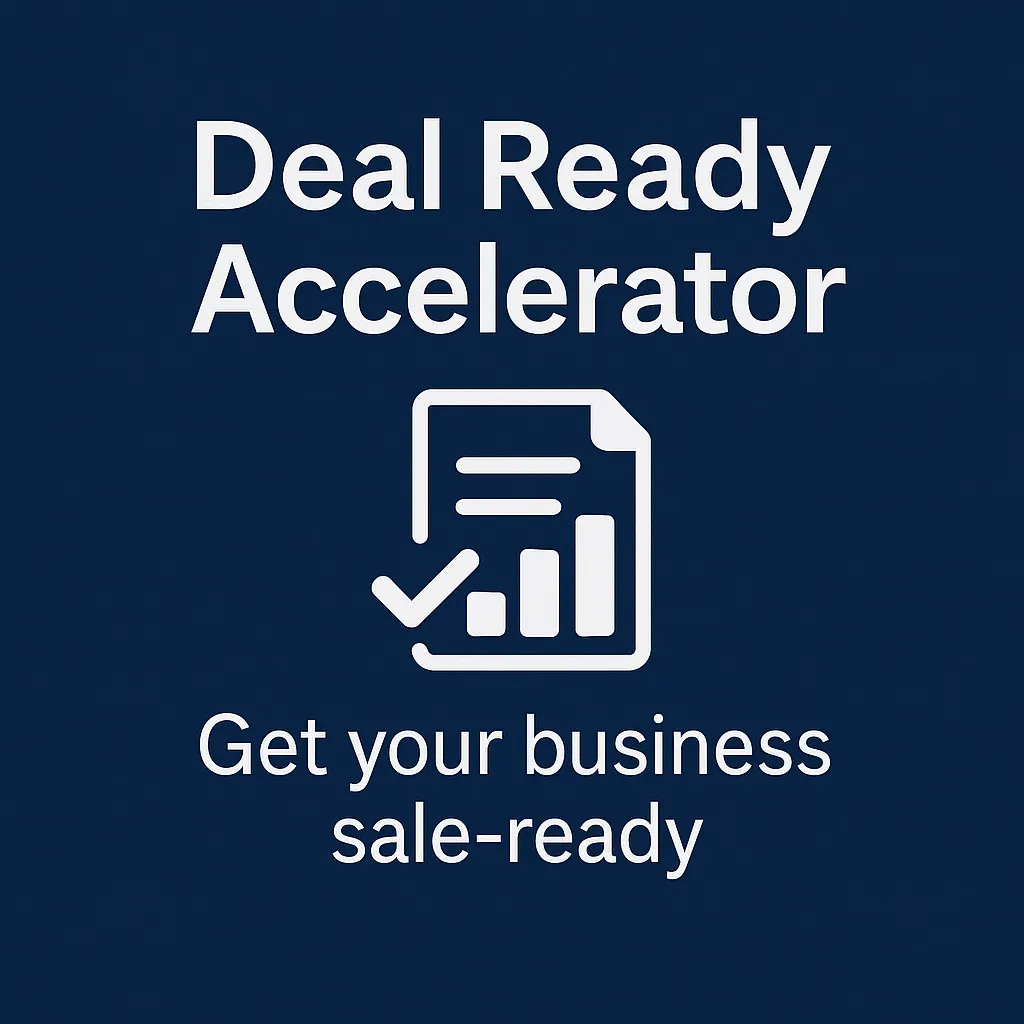
Deal Ready Accelerator
What Next?
Now you will implement your strategic exit plan through structured execution, real-time progress tracking, empowered team leadership, and high-touch expert support — all tailored for your business aiming to maximise its value and exit smoothly.
You will Execute
Custom Execution Plan
KPI Design & Exit-Focused Scorecard
Exit Governance Framework and monitoring
Strategic Advisory Access
What we do
Helping Businesses Achieve Their Goals
The Exit Architect is a structured program to help you build a business that runs, grows, and sells without you.
Through our proven 3-phase method, we help founder-led businesses:
Full Business Audit from Buyer's Perspective
Strategic Plan to Multiply Valuation
Make the Business Exit Ready
Even if you don’t exit, you’ll come out with a business that’s easier to run — and worth far more.

About us
At UniqueDirection, we specialise in helping small business owners design the final chapter of their entrepreneurial journey.
Most small to medium businesses are stuck in the middle:
They’ve built something successful — but unsellable.
Their business depends on them.
Their profits aren’t predictable.
And when buyers come knocking, the numbers don’t justify the stress.
The Exit ArchitecT isn’t just about selling — it’s about building a better business before you sell.

READY TO GIVE US A TRY?
Let's connect
I confirm that I want to receive messages from using the contact information provided.
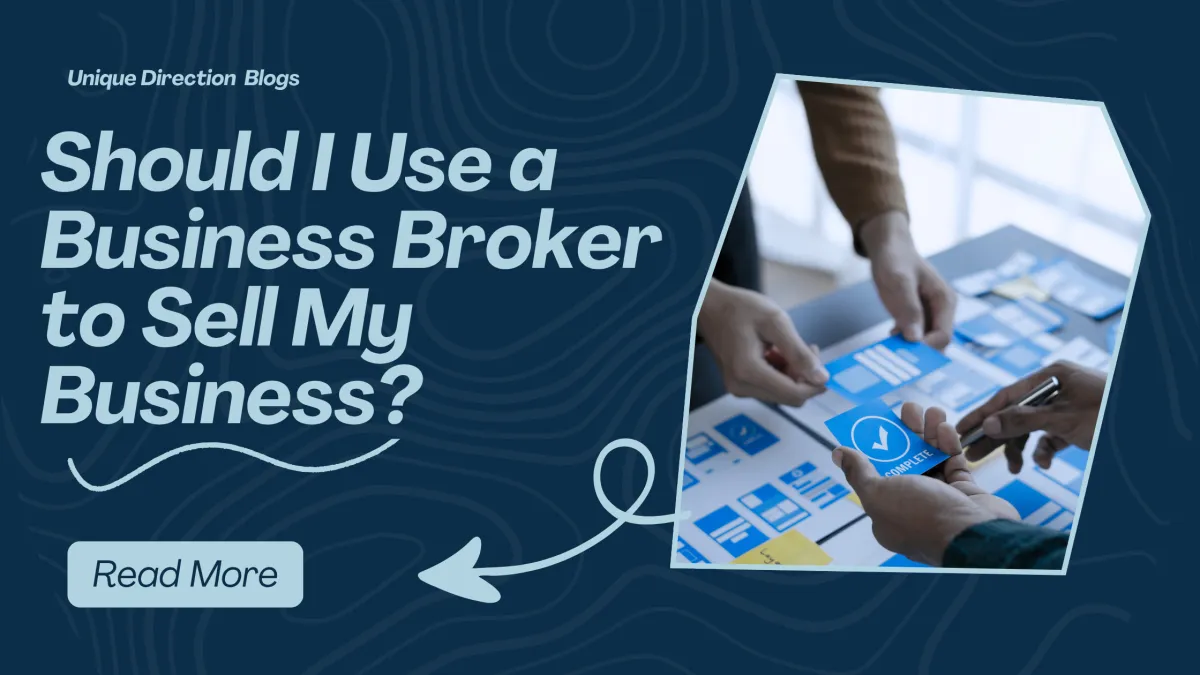
Should I Use a Business Broker to Sell My Business?
Should I Use a Business Broker to Sell My Business?
When most founders decide it’s time to sell, the first thing they hear is:
“You should speak to a broker.”
And for some, that might be the right path. But for many founder-led businesses — especially those between £1M and £10M in revenue — using a traditional broker can limit both your exit options and your exit value.
Before you sign a mandate, it’s worth asking: What’s the real role of a broker — and is it what you actually need right now?
What Business Brokers Actually Do
Brokers play a transactional role. Their focus is on:
Listing your business on a network
Introducing it to potential buyers
Managing initial interest and negotiations
Taking a commission if a deal completes
For some founders — especially those in smaller, lifestyle businesses — this works.
But if you’re building something with long-term value, a strong team, and serious buyer appeal… a broker often comes in after the most critical work is done.
And they rarely help with that work.
The Risks of Relying Solely on a Broker
Here’s where many founders trip up when relying solely on brokers:
1. They list, but don’t prepare
Most brokers don’t help you systemise your business, reduce founder reliance, or structure for value. They simply present what already exists.
2. They pitch too broadly
To maximise speed, brokers often cast a wide net — sending your company profile to generic buyer lists, not strategic matches.
3. They create a “for sale” dynamic
The moment your business hits the market publicly, you lose leverage. Strategic buyers want access, not auctions. The best deals happen before you're visibly on the market.
4. They’re incentivised to close — not maximise
Most brokers get paid on deal size, not value creation. The faster they close, the better for them. That doesn’t always mean the best outcome for you.
DIY: What to Consider Before Hiring a Broker
Before engaging any broker, ask yourself:
Do I know what my business is really worth — and what drives that valuation?
Have I already reduced risk, systemised operations, and defined a buyer-aligned strategy?
Would a strategic buyer prefer to engage directly, before the business is publicly listed?
Do I want to lead the process — or hand it over?
If you're unclear on any of these, a broker might be premature.
Where Unique Direction Fits
Our Entire Framework: From BuyerLens to Exit Execution
At Unique Direction, we work with founders before they reach the broker stage — and in many cases, to help them avoid it altogether.
Our approach is different:
The BuyerLens Audit shows you how a buyer will value your business — and where risk lives
The Strategic Exit Multiplier helps you shape the business around valuation growth and buyer alignment
The Deal Ready Accelerator ensures your operations, people, and systems are built for scrutiny — and transfer
With this foundation in place, you’re in control. Whether you choose a broker, approach buyers directly, or consider a management buyout — you’re positioned to lead the deal, not follow it.
Why Founders Choose Strategy Over Brokerage First
Brokers sell what exists. We help you build the business that gets a better deal.
That difference — between listing and leading — can mean hundreds of thousands in additional value, more favourable terms, and a smoother transition on your own terms.
Final Thought
You don’t need a broker to get started. You need insight. You need preparation. You need a clear strategy — not just an agent.
Then, if you choose to bring a broker in later, they’re not creating the story — they’re helping you tell it.
Want to explore a strategic, broker-free path to exit? Start with a discovery call.
Recommendations:
